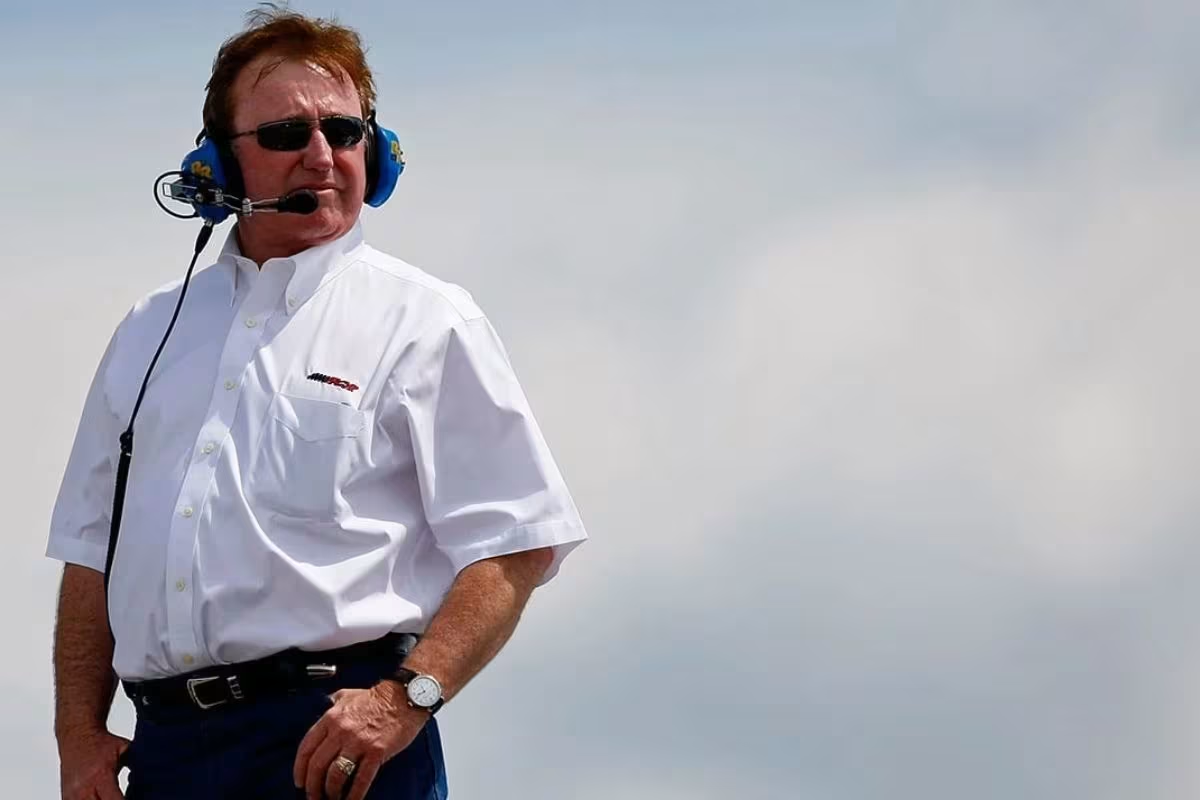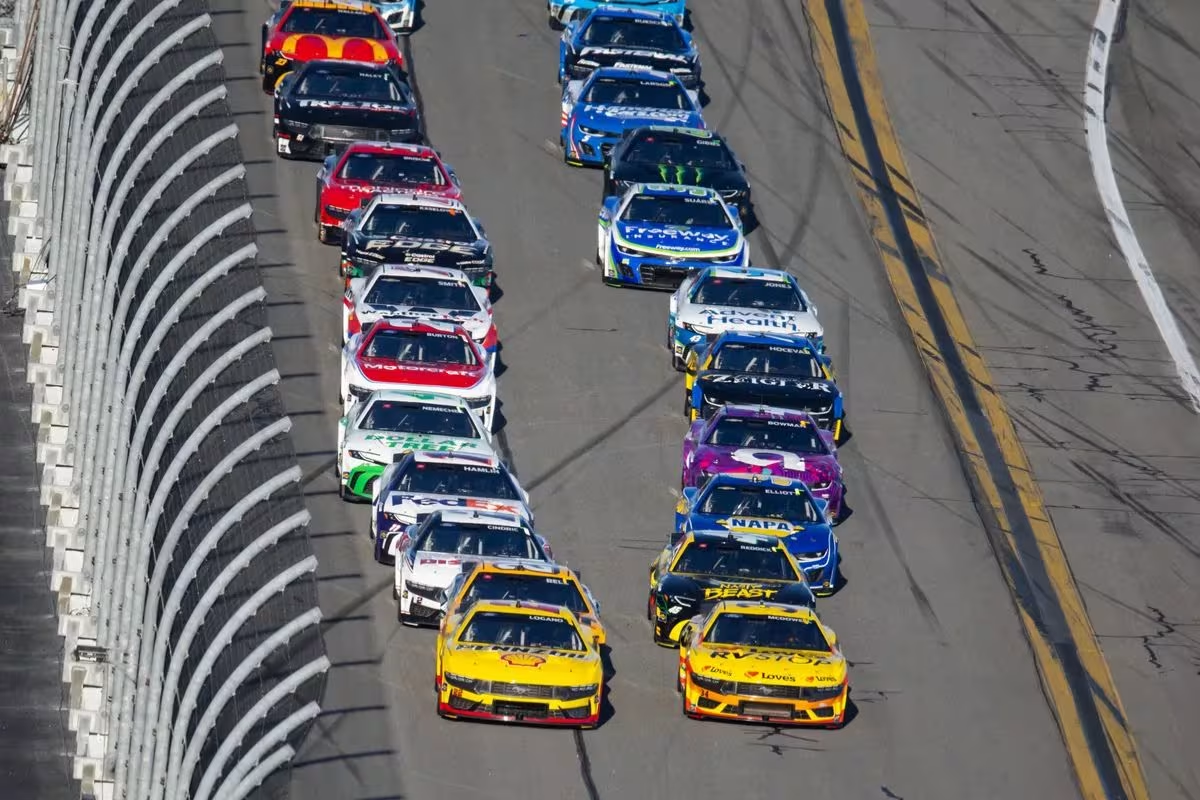NASCAR Giving Threats Over Charter Deals: Tension is brewing in the NASCAR world as 23XI Racing, co-owned by basketball star Michael Jordan, shakes things up with an anti-trust lawsuit. What does this mean for the future of NASCAR? The charter system is under fire, raising questions about fairness and competition. Richard Childress, a seasoned NASCAR figure, shares his worries about the lawsuit’s impact on teams like his. What challenges lie ahead for NASCAR as the pressure intensifies?
Key Highlights
- Richard Childress reveals intense pressures and planned tactics during charter deal negotiations, raising concerns about the integrity of the process.
- The anti-trust lawsuit by 23XI Racing exposes monopolistic practices within NASCAR’s charter system, further complicating negotiations for smaller teams.
- Childress highlights that team owners feel scared, contributing to an environment of uncertainty and fear regarding charter agreements.
- Unethical behavior during negotiations can put employees’ job security at risk, causing dissatisfaction among team owners..
- The outcome of the lawsuit could significantly impact future charter negotiations, media revenue, and the overall stability of the NASCAR community.
Tension in NASCAR: 23XI’s Anti-Trust Lawsuit
There is a growing unease within the NASCAR community as 23XI Racing, co-owned by basketball legend Michael Jordan, has initiated an anti-trust lawsuit against the organization. This move raises critical questions about the structure and governance of NASCAR, particularly regarding the contentious charter system.
The lawsuit stems from concerns that the charter agreements, which control team entries and revenue shares, may encourage controlling practices that stifle competition and innovation within the sport.
The timing of this legal action is particularly, occurring in a week traditionally characterized by the calm between races. The evident tension among fans reflects broader anxieties about the consequences of such a lawsuit. investors are increasingly worried that the charter deals may not only disadvantage new or smaller teams but may also threaten the integrity and future viability of the sport itself.
Moreover, the lawsuit has sparked discussions about the power dynamics within NASCAR. By positioning itself against the established order, 23XI Racing is challenging the status quo and calling for a reevaluation of the rules that govern team operations.
Richard Childress Discusses Charter Deal Pressures
As the landscape of NASCAR evolves in the midst of legal challenges, Richard Childress has voiced the considerable pressures surrounding the charter deal negotiations for his team’s 2025 entry. The recent anti-trust lawsuit filed by 23XI Racing and Front Row Motorsports has added a layer of tension, says Childress to reflect on the unsettling dynamics that characterize the current charter system.
Childress, a seasoned figure in NASCAR, articulated his concerns about the consequence of these legal disputes on the future of the sport. He shows that the environment surrounding charter deals is fraught with intimidation and uncertainty. As teams vie for stability and competitive equity, the stakes have never been higher.
“Their ruling has changed NASCAR racing on the final lap forever.”-(childress)
Moreover, this discussion comes on the heels of his vocal support for Austin Dillon following a controversial ruling that stripped Dillon of playoff eligibility. Childress’s comments regarding the lasting impact of that ruling demonstrate his deep concern for the evolving nature of competition in NASCAR.
He argued that the charter system should promote fairness and opportunity, yet the current atmosphere appears to compromise those ideals.
Childress Details His Charter Signing Experience
Childress’s recent experience with his charter deal illustrates the intense pressures and time constraints teams face in NASCAR today. After a lengthy negotiation, he had only six hours to review and finalize the necessary documents to secure the charter. The situation became even more urgent due to a strict deadline—if he didn’t sign by noon, he would lose the charter, which is crucial for the team’s stability.
In a candid moment, Childress described when the documents arrived for electronic signature. He recalled that his team completed the DocuSign process at 6:37 PM, highlighting just how tight the timeline was for review. This scenario underscores the difficult balance team owners must strike between meeting organizational demands and protecting their business interests.
With over 400 employees, contracts with original equipment manufacturers (OEM), and sponsorship commitments, the weight of responsibility fell squarely on Childress’s shoulders. His remarks on the ongoing anti-trust lawsuit against NASCAR indicate a broader context in which these pressures exist.
While he refrained from extensive commentary due to legal considerations, it is clear that there is lot of risk. The urgency with which he had to act accentuates the often overlooked complexities of NASCAR’s charter system. For team owners, the intersection of legal obligations and competitive survival shapes their experiences profoundly, revealing an environment where decisions must be made swiftly, often under duress.
Childress Reflects on the Lawsuit’s Implications
The implications of the ongoing anti-trust lawsuit against NASCAR resonate deeply within the racing community, particularly for team owners like Richard Childress. Childress’s reflections on the lawsuit showing the troubling tactics employed during the charter deal negotiations, which have considerable consequences for team dynamics and the future of the sport.
“We’ve read it all. I can’t comment a whole lot now because the attorneys are handling a lot of that. But I will say that the part about, we got our docu-sign signed that evening at 6:37 when it came in. And we had to sign by 12 o’clock or we’d lose our charters. I didn’t have a choice because we had to sign. We have over 400 employees, OEM contracts, and sponsors, and I gotta take care of our team.”-(childress)
Richard Childress on the 23XI/Front Row lawsuit against NASCAR, whether any team owners could join and the pressure he felt to sign the charter agreement Sept. 6. pic.twitter.com/tcN17OVnnS
— Bob Pockrass (@bobpockrass) October 5, 2024
Childress’s concerns highlight several critical issues:
- Coercive Practices: The revelation that teams were presented with a 100-page contract under duress raises questions about the principle of such tactics. The urgency placed on signing without adequate time for review emphasizes a power imbalance within the organization.
- Job Security for Employees: The pressure to sign these agreements not only risk the financial stability of the teams but also places employees’ livelihoods at stake, creating a culture of fear rather than one of collaborative growth.
- Long-Term Consequences: The willingness of team owners, including notable figures like Rick Hendrick, to capitulate out of fatigue signals a troubling trend. This can lead to a lack of accountability and transparency within the sport, adversely affecting future negotiations and relationships among stakeholders.
“I think we worked really hard for two years and it got down to, you’re not going to make everybody happy. And I think it got down to, I was just tired.”-(rick hendrick)
As the lawsuit unfolds, its consequence extend beyond immediate financial outcomes, calling into question the foundational principles of fair play and equitable treatment in NASCAR.
Childress on the Future and the Lawsuit
In the midst of a turbulent season for Richard Childress Racing, the intersection of the ongoing anti-trust lawsuit and the future of NASCAR has sparked considerable reflection from the veteran team owner. Following a challenging year marked by the largest fine in NASCAR history and strained negotiations, Childress faces a uncertain landscape. The recent lawsuit filed by 23XI and Front Row Motorsports, although a rallying cry for some, has left him cautiously optimistic yet wary.
“Bob, I don’t know how you phrase ‘happy’ on this. I would just say that I don’t think we can join. It’s way too early to talk about all the legal stuff. NASCAR hasn’t even came back with an answer. I’m sure they’re looking at antitrust attorneys. I know they are.”-(childress)
News in Brief: NASCAR Giving Threats Over Charter Deals
The ongoing tensions within NASCAR, particularly surrounding charter deals, shows considerable issues regarding competition and fairness. Richard Childress’s revelations about pressure tactics during the charter signing process systemic challenges faced by team owners. Additionally, the implications of the anti-trust lawsuit filed by 23XI Racing could reshape the operational landscape of NASCAR. As the situation develops, the potential for reform in charter agreements and broader governance remains a crucial focal point for stakeholders within the sport.
ALSO READ: When Richard Childress Boldly Ignored His Boss and Created a NASCAR Dynasty




